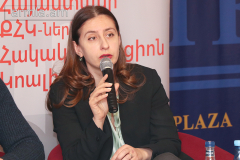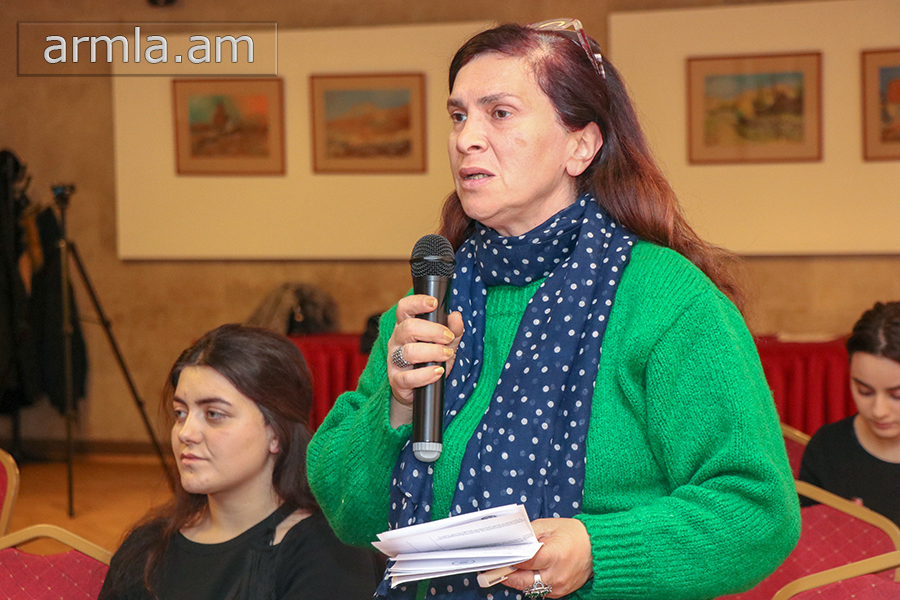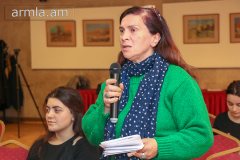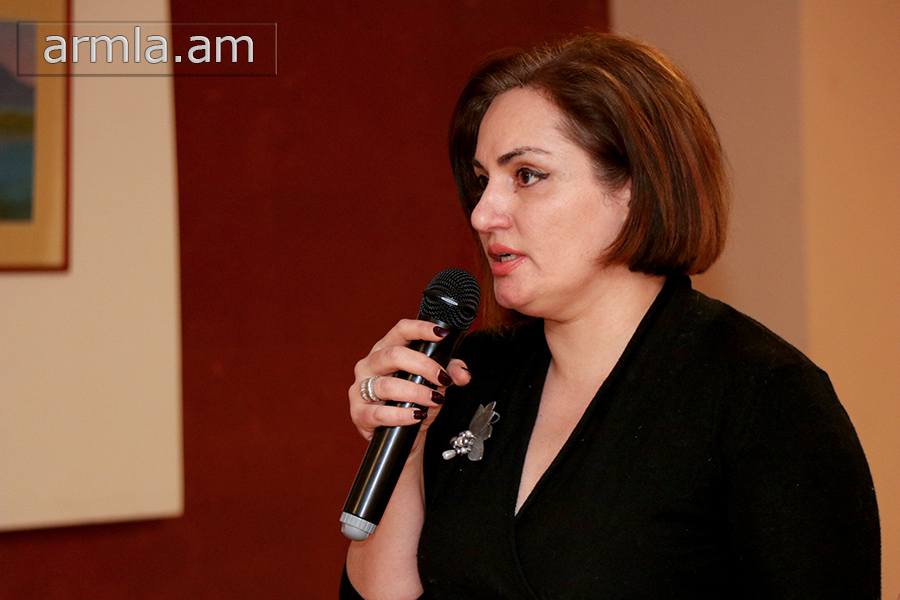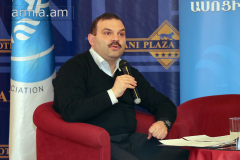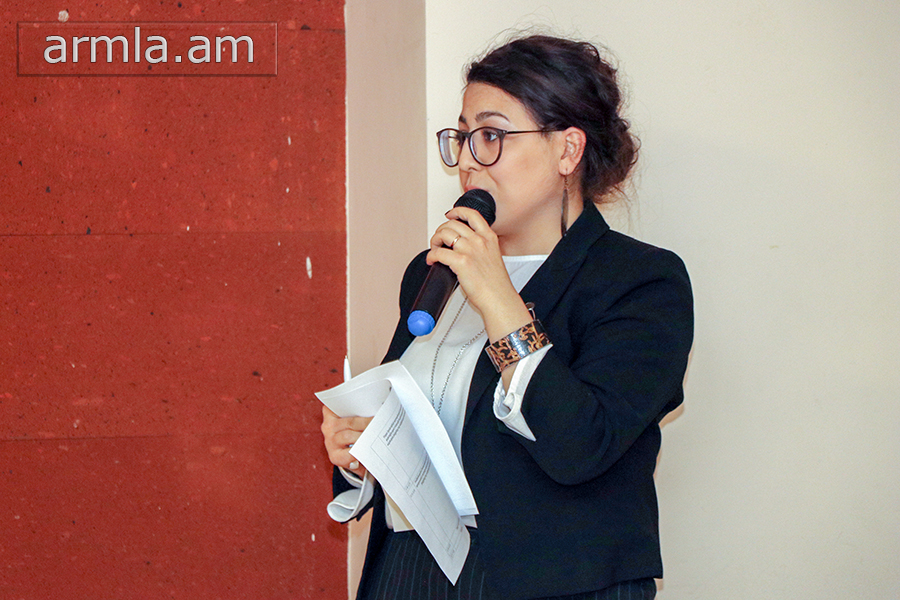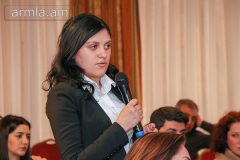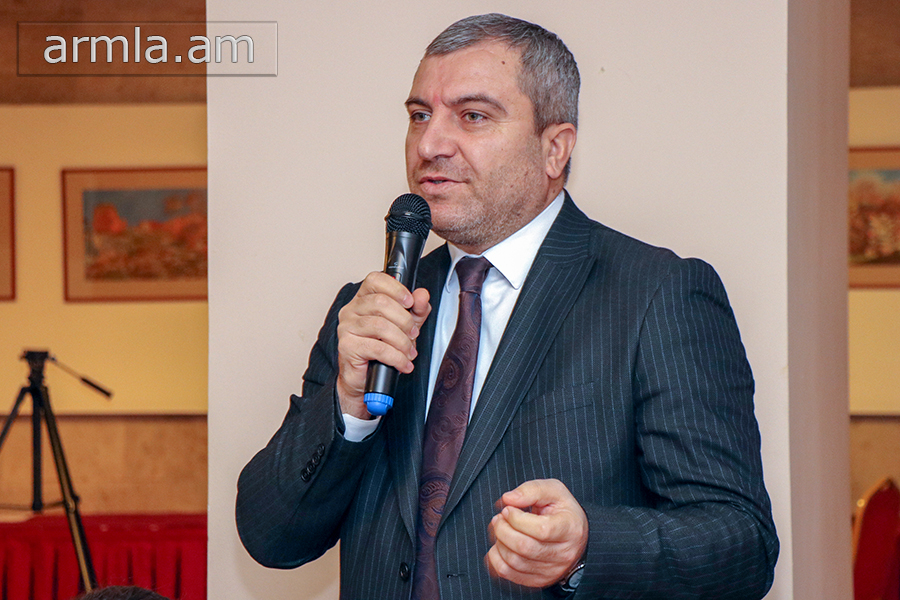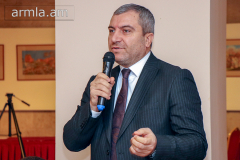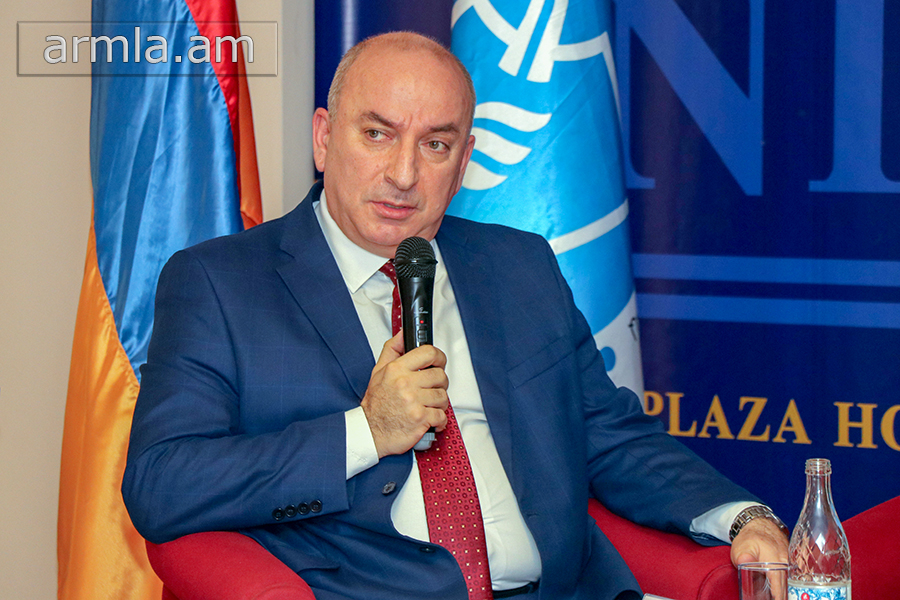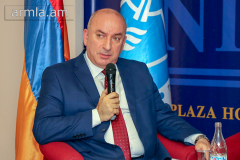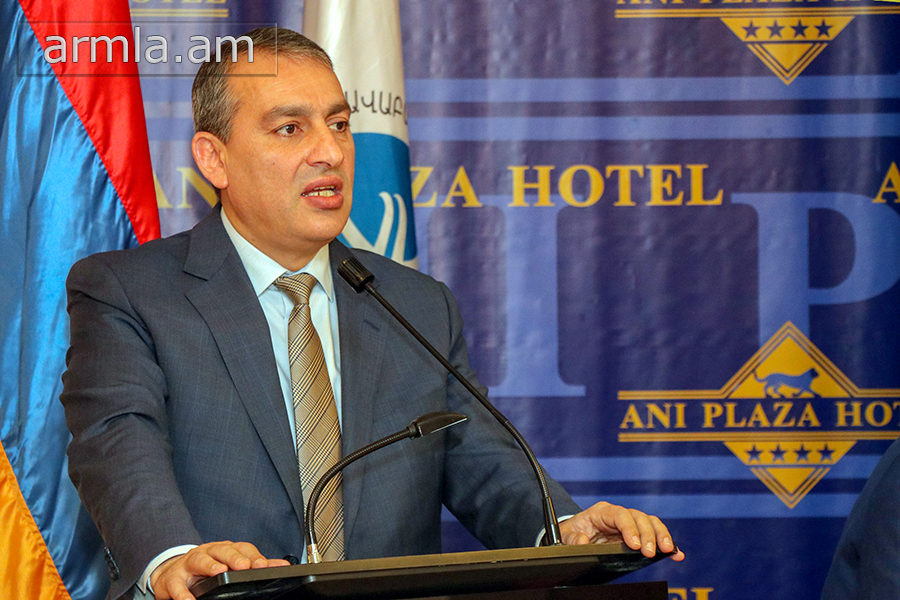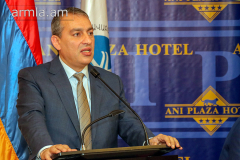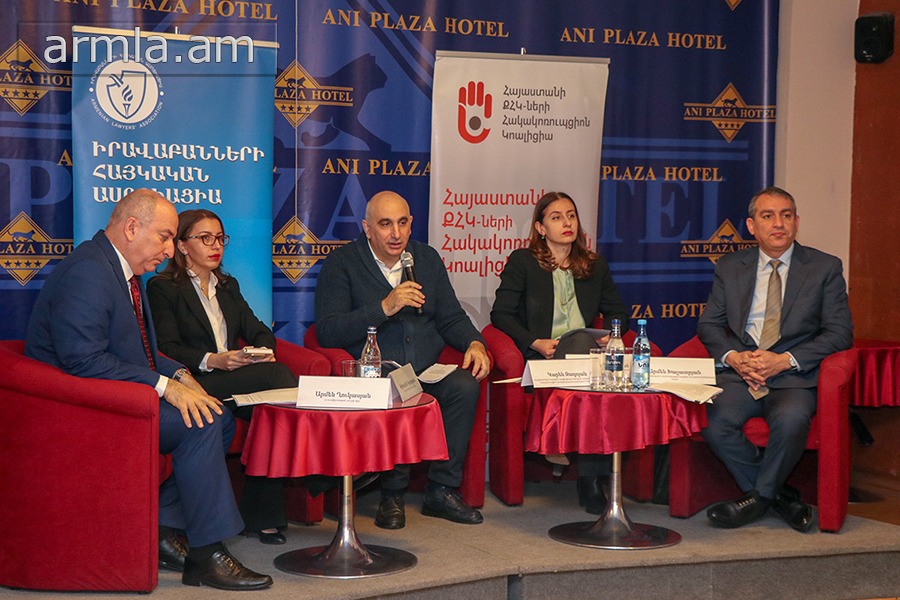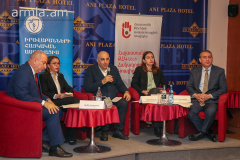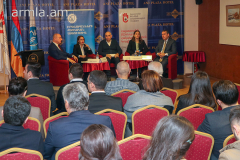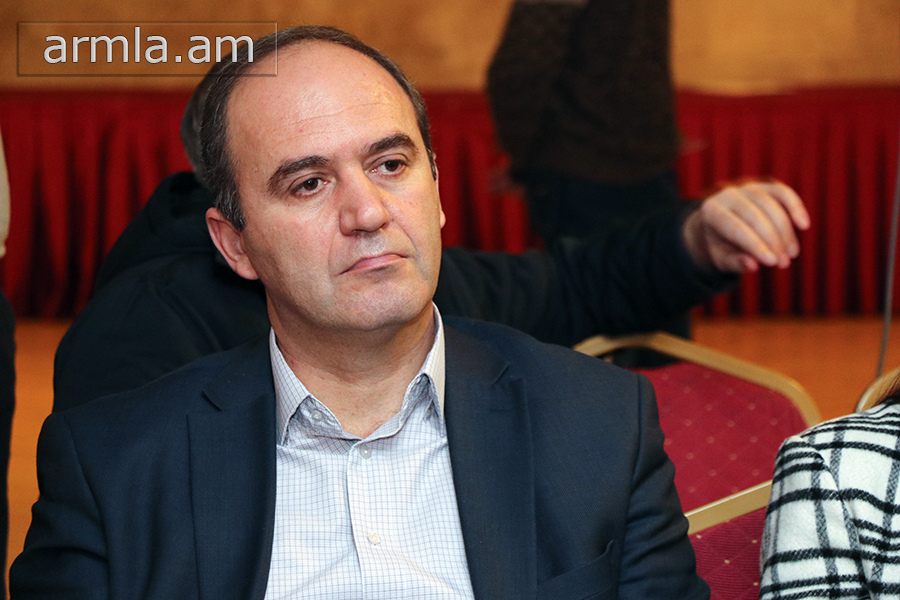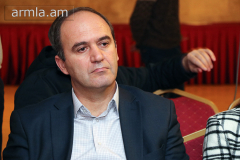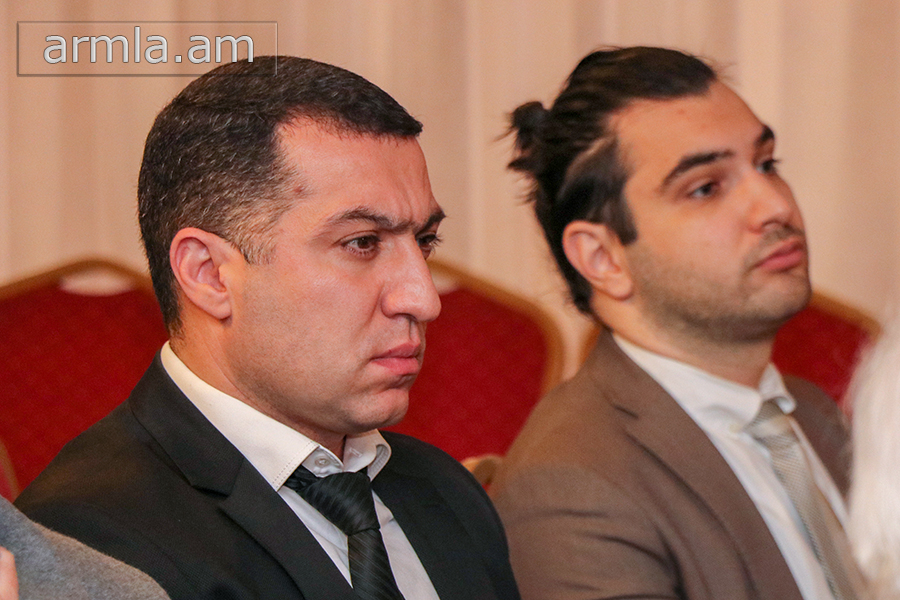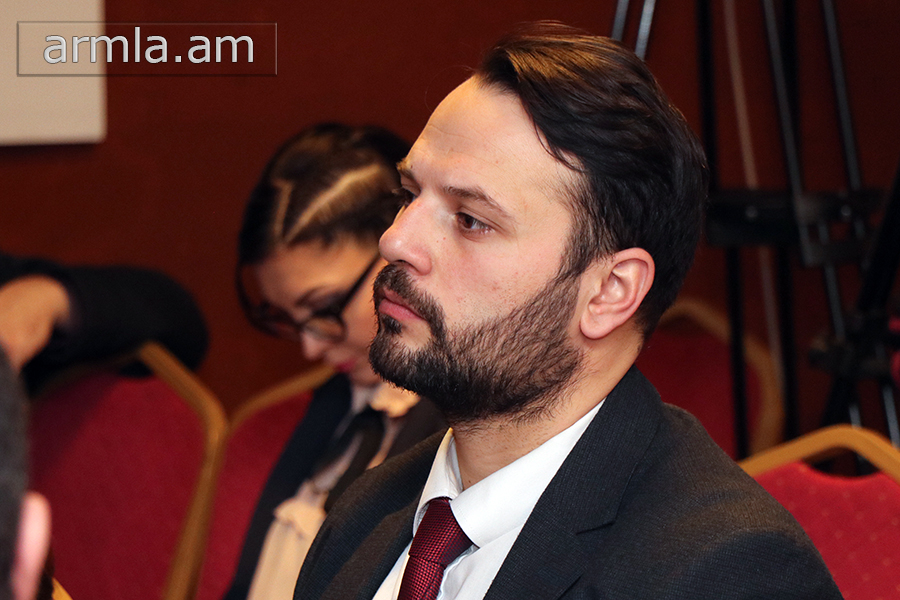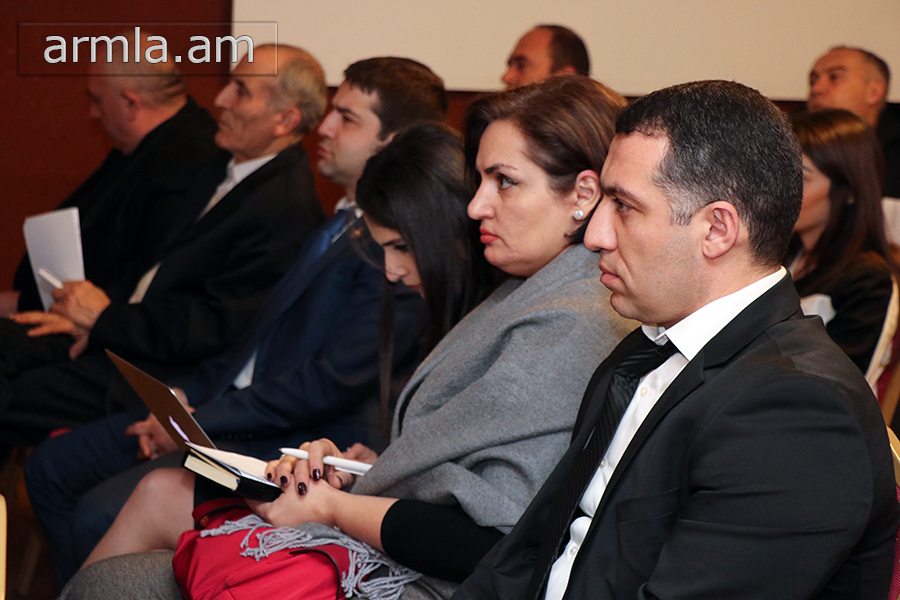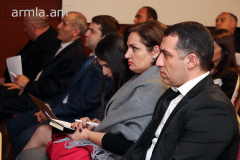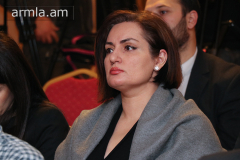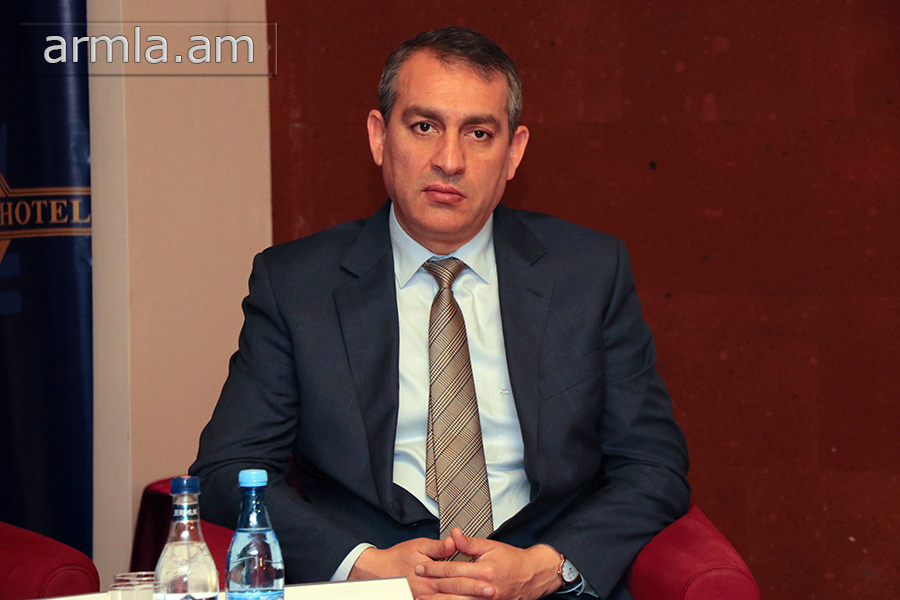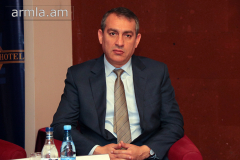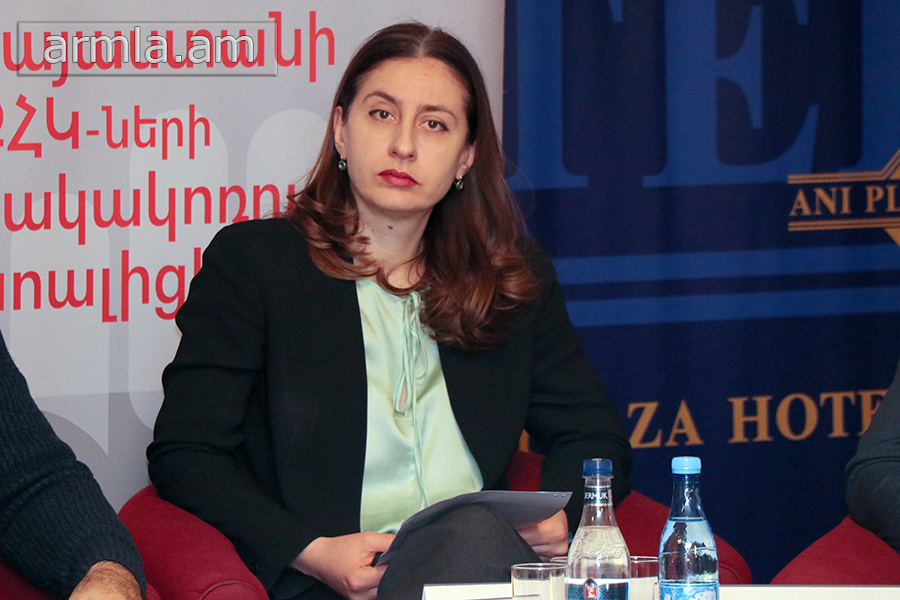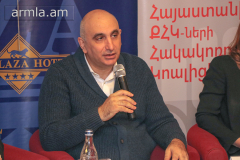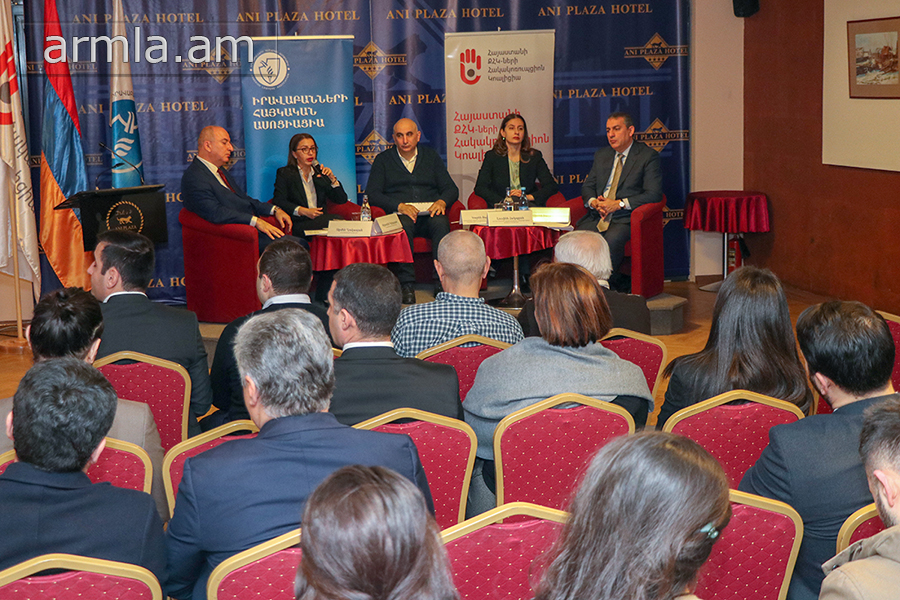
On 25 February, the public discussion on the “RA Police Reforms Strategy and Its Implementation Action Plan for 2020-2022” took place. The discussion was organized by the Armenian Lawyers’ Association and the CSO Anti-Corruption Coalition of Armenia.
“The most important issue, as set out in this reform package, is to change the image of the police officer. As we used to say during Transitional Justice discussions: the law enforcement system, the judiciary, law enforcement agencies, public and civil servants must change the image of “human rights abusers” and become the defenders of human rights, and the policeman must be trustworthy for the public. In order to work in the police, this job has to be attractive, and there are a lot of important issues and accents to achieve, and the most important is education,” Mr. Karen Zadoyan,President of the Armenian Lawyers’ Association, Coordinator of the Secretariat of the CSOs Anti-Corruption Coalition of Armenia mentioned this in the opening remarks.
“In order to achieve the ultimate goal of changing the attitude and confidence of the public towards the police, a number of strategic changes have been envisaged, around which the Ministry of Justice conducts daily work with the police,” Ms Kristinne Grigoryan, the Deputy Minister of Justice of the Republic of Armenia mentioned in her speech. “The main objective of these reforms is to change the image, the philosophy of the police, the police officer’s character – sensitive to human rights protection, focused on protecting those rights, accountable, transparent, professionally trained, with improved behavioral and attitude characteristics,” the Deputy Minister said.
Mr. Armen Khachatryan, Member of the National Assembly, member of the NA Standing Committee on Defense and Security, noted that the draft is a long-awaited; “The police today do not have the powers, and there is lack of the necessary legal regulations to enable the police to properly address the tasks, to create the visions we want to see in the police force, to tackle today’s challenges more effectively. It can be said that in the last decade the police have weakened, the authorities have been taken over, and no new investments have been made in the police field – legal, human resources, which has brought and reached to this situation.”
According to Ms Lusine Hakobyan, National Coordinator of the EaP CSF Armenian National Platform, President of the “Europe in Law Association” Human Rights Non-Governmental Organization, the police have been a tool in the hands of the political authority of the day for many years; “It is for this reason that the police enjoy a very low level of confidence. This role of the police has been most evident in the exercise of freedom of assembly under the jurisdiction of Armenia, when unnecessary violence has been used for years at various assemblies dispersed by force.”
“There is no need to refer to the legal-political assessment of police activity in this document and its existence is a clear testimony that not everything satisfies all of us – both, the civil society and the police. Of course there is a need for reform,” Mr. Armen Ghukasyan, Head of the RA Police Headquarters, Police Colonel said.
The public, as the sole presumed beneficiary of the police service must give its impetus to the types, formats and skills and abilities police officers that it wants to see. “Of course, we have our own perceptions based on the study of international best practice, there are countries that have tried reform at some stage, some have failed, there are some that have largely succeeded and we are in a good position because from the educational point of view, they can evaluate them and get results to invest in us,” Mr. Mushegh Babayan, Head of the Educational Complex of the Police of RA, Police Major General said.
Deputy Minister Kristinne Grigoryan also said in her speech that the Police Educational Complex has been providing police personnel for years, but the philosophy we see in introducing new social, democratic regulation requires some innovations. She outlined the main directions and priorities of the police reform strategy.
“There is no need to refer to the legal-political assessment of police activity in this document and its existence is a clear testimony that not everything satisfies all of us – both, the civil society and the police. Of course there is a need for reform,” Mr. Armen Ghukasyan, Head of the RA Police Headquarters, Police Colonel said.
NA MP Armen Khachatryan presented the functions the newly formed patrol police will carry out. “The patrol officer will respond to all cases of offenses and crimes that he or she will receive an alert, ranging from traffic rules to responding to crime cases. The response should be very quick, urgent and patrol police should have all the necessary technical means to solve the tasks they are facing. They must have the best means of transport, good uniforms, good weapons, techniques, and all software and equipment in their transportation means for identifying individuals and drawing up administrative acts. All this requires quite big expenses, we have a rough idea of what it is, but talking about costs is, I think, secondary, it should be done at all costs” the deputy said.
Mr. Karen Zadoyan, President of the Armenian Lawyers’ Association, Coordinator of the Secretariat of the CSOs Anti-Corruption Coalition of Armenia raised a number of systemic issues, noting, “All of this will succeed if we launch a serious education process and hand those responsible to specialized civil society organizations: with their authority, with their resources, and also to calculate exactly how much money is needed for that education process, because we need to get into schools, carry out work, organize extra continuing education, evaluate it, and so on to create an image of the new community policeman.”
According to Ms Amalia Hovsepyan, Coordinator-Advisor of International Legal Cooperation Department of the Ministry of Justice of the Republic of Armenia, that the strategy provides for the need to have a new educational program to create a new patrol service, but it is also very important to have specific educational models for the society. “We have a separate point in the strategy, which is the communication strategy. This will reflect and to some extent cover this block of education: relevant public relations, campaigns, organization of campaigns, so that we can continue to provide the contingent that will apply to the competitions, provide a competitive environment, will then will be appointed or become a patrol police officer,” she said.
Mr. Marat Atovmyan, Expert on Anti-Corruption and Integrity Issues noted that that on the way of police reforms, the positive example, behavior, and approaches of the police system and state leadership is also important. “Particular attention should be paid to the fight against corruption in the system and the maintenance of ethical standards in general, because a certain level of corruption or not ethical behavior in the police system not only casts a shadow over the whole system but also directly affects the authority of the state. In fact, police officers should be an example in their behavior in terms of forming a law-abiding society.”
The main directions and priorities of the police reform strategy were presented, as well as the issues of improving human rights protection, transparency and public accountability, attractiveness of the police service, staff training and professional development in the new police system.


